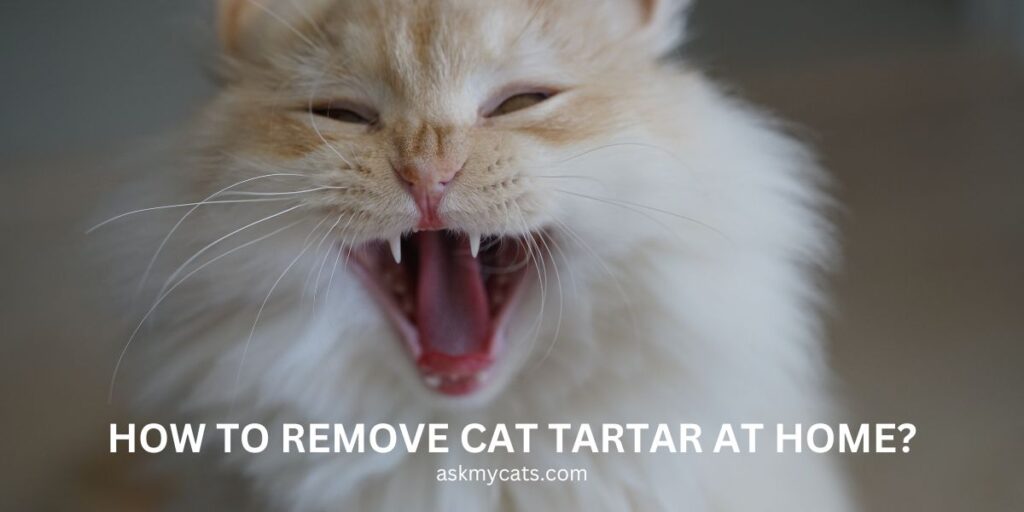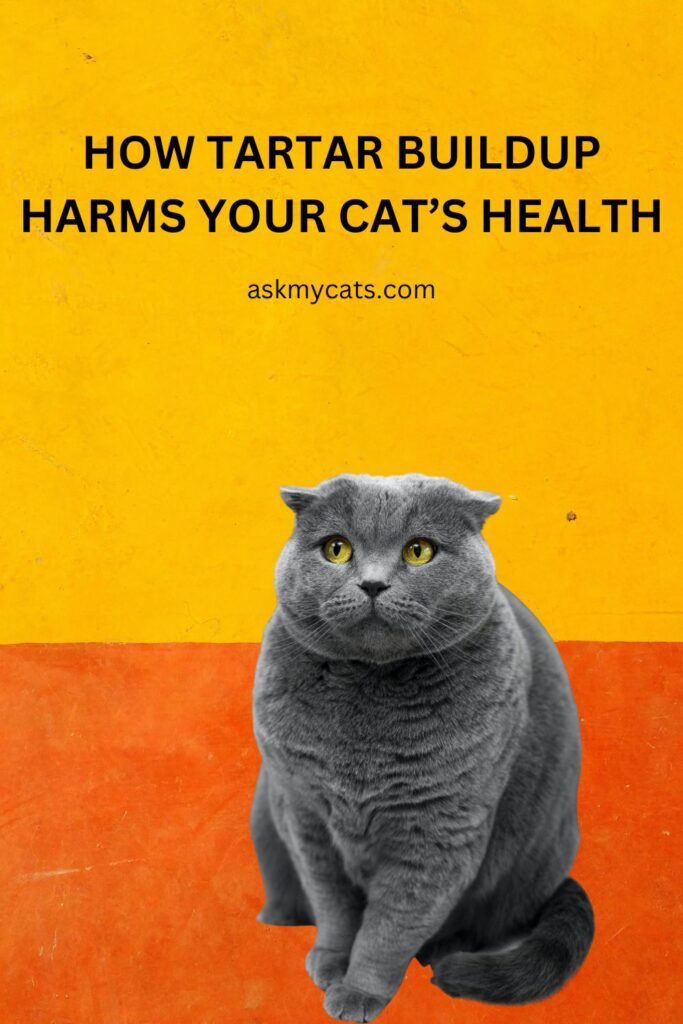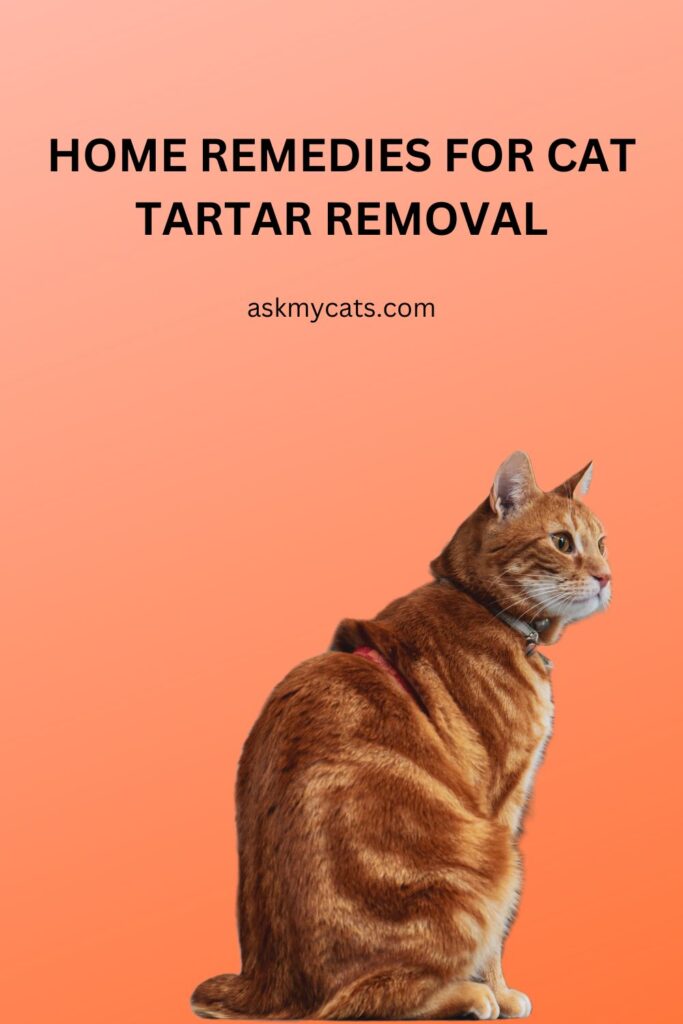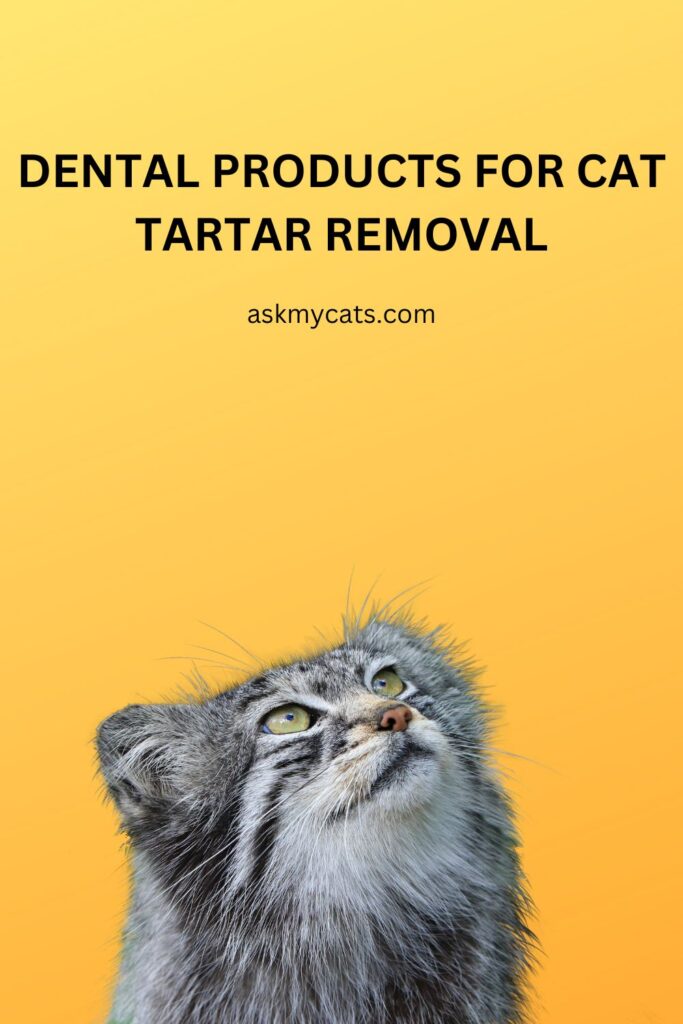Dental health is an essential aspect of the overall well-being of cats. Just like humans, cats can develop tartar buildup on their teeth, which can lead to various oral health problems if left untreated.
Tartar, also known as dental calculus, is a hardened plaque that accumulates on the teeth, harboring harmful bacteria.
In this article, we will explore the significance of dental health for cats and shed light on the consequences of untreated tartar buildup.
Key Takeaways
- Home remedies for cat tartar removal include toothbrushing, ProDen Plaque Off Powder, Q-tip wiping, using a finger covered in gauze, and changing the cat’s diet.
- Dental products such as treats, chews, toothbrushes, toothpaste, water additives, tartar removal gels, sprays, and raw bones can aid in cat tartar removal.
- Feeding a dental diet with a crunchy texture and tartar control formulation can help prevent tartar buildup.
- Consult with a veterinarian for significant tartar buildup or suspected dental issues.


Give Your Cat the Perfect Day
Get the Free Ebook!
How Tartar Buildup Harms Your Cat’s Health

Dental problems in cats can range from mild gingivitis to severe periodontal disease. When tartar accumulates on the teeth, it provides a breeding ground for bacteria that can cause inflammation of the gums.
This inflammation, known as gingivitis, can lead to red, swollen gums and discomfort for the cat.
If left untreated, gingivitis can progress to periodontal disease, which affects the tissues and structures supporting the teeth.
Over time, periodontal disease can result in tooth loss and can even lead to more serious health issues if the bacteria enter the bloodstream.
Untreated tartar buildup not only affects the mouth but can also have systemic effects on a cat’s overall health. The bacteria present in the mouth can enter the bloodstream, potentially impacting vital organs such as the heart, liver, and kidneys.
Therefore, maintaining good dental health is crucial to prevent these consequences and ensure the well-being of our feline companions.
Interesting Read: Yellow Teeth in Cats: What Every Pet Owner Needs to Know
Home Remedies for Cat Tartar Removal

When it comes to removing cat tartar at home, there are several methods you can try.
These home remedies can be effective, especially for mild tartar staining, but it’s important to note that they may not completely eliminate severe tartar buildup.
Here are some common home remedies for cat tartar removal:
- Brushing with a Toothbrush or Dental Wipe: Regular brushing of your cat’s teeth is one of the most effective ways to remove tartar and maintain good oral hygiene. Use a soft-bristled toothbrush specifically designed for cats or a dental wipe. It’s important to introduce toothbrushing gradually and make it a positive experience for your cat. Use toothpaste formulated for cats, as human toothpaste can be harmful to them.
- ProDen Plaque Off Powder: ProDen Plaque Off Powder is a natural supplement that can help reduce tartar and plaque in cats. It contains seaweed and various minerals that work to break down and prevent the accumulation of tartar on the teeth. This powder is usually sprinkled onto your cat’s food daily.
- Wiping Teeth with a Q-tip: Another method is to use a damp Q-tip to gently wipe your cat’s teeth and gums. This can help remove some surface tartar and maintain oral hygiene. Be cautious and gentle to avoid causing any discomfort to your cat.
- Using a Finger Covered in Gauze as a Toothbrush: If your cat is not comfortable with a toothbrush, you can try using a finger covered in gauze as a substitute. Gently rub the teeth and gums in a circular motion to remove tartar and promote dental health. Must read: Finger Toothbrushes for Cats: A Comprehensive Guide
- Changing the Cat’s Diet: Diet plays a role in dental health as well. Some specialized cat foods are designed to help remove staining and prevent tartar buildup. These foods often have a crunchy texture that helps scrub the teeth while chewing, promoting oral hygiene. One example is the Hills TD diet, which is formulated to reduce mild tartar staining.
It’s important to note that while these home remedies can be beneficial for mild tartar staining, they may not be sufficient for severe tartar buildup.
In such cases, professional dental cleaning by a veterinarian is recommended. Regular veterinary check-ups are crucial for assessing your cat’s dental health and determining the best course of action.
Must Read: How to Brush a Cat’s Teeth: Step-by-Step Guide
Dental Products for Cat Tartar Removal

In addition to home remedies, there are various dental products available that can aid in cat tartar removal and promote oral health.
It’s essential to consult with a veterinarian before using any products to ensure they are safe and suitable for your cat.
Here are some commonly used dental products for cat tartar removal:
1. Dental Treats:
Dental treats are specifically designed to promote dental health in cats. These treats often have a crunchy texture that helps reduce tartar and plaque buildup while cats chew on them.
Look for treats that are approved by veterinary dental associations and have the Veterinary Oral Health Council (VOHC) seal of acceptance.
2. Dental Chews:
Dental chews are similar to dental treats and serve the purpose of cleaning the teeth while providing a chewing activity for cats.
They help reduce tartar and plaque by mechanically scraping the teeth as cats chew on them. Opt for chews that are appropriately sized for your cat and made from safe materials.
Learn more about: Cat Teeth Cleaning Treats, Toys & Chews
3. Cat Toothbrush and Toothpaste:
Using a cat-specific toothbrush and toothpaste is crucial for proper dental care. The toothbrush should have soft bristles and a small head to comfortably fit into your cat’s mouth.
Toothpaste formulated for cats is important, as human toothpaste contains ingredients that can be harmful to them. Toothpaste flavors like poultry or seafood can make the brushing experience more enjoyable for your cat.
Interesting Read: What Happens If Your Cat Eats Or Licks Toothpaste?
4. Water Additives:
Some water additives are available that can promote oral health in cats. These additives usually contain enzymes or anti-bacterial agents that help inhibit plaque formation and maintain oral hygiene.
Simply add the recommended amount of the water additive to your cat’s drinking water daily.
Must Read: Dental Water Additives for Cats: Effectiveness and Safety
5. Tartar Removal Gels and Sprays:
Tartar removal gels and sprays are designed to break down and remove tartar from the teeth. They often contain enzymes or other active ingredients that help dissolve and loosen tartar buildup.
Apply these products as directed on the packaging, typically by spraying or applying directly to the teeth and gums.
6. Raw Bones or Natural Chews:
Raw bones or natural chews can serve as natural dental tools for cats. Gnawing on bones or appropriate chews can help scrape away plaque and tartar from the teeth.
However, it’s crucial to ensure the bones or chews are safe for cats, properly sized and suitable for their chewing habits.
Must Read: How to Keep Your Cat’s Teeth Clean Without Brushing?
Home Remedies for Cat Tartar Removal: Ingredients, Application Methods, Frequency, and Precautions
| Home Remedy | Ingredients | Application Method | Frequency | Precautions |
|---|---|---|---|---|
| Baking Soda Paste | 1 tablespoon of baking soda, water | Mix baking soda with enough water to form a paste. | 2-3 times a week | Use a soft-bristled toothbrush and avoid vigorous scrubbing. |
| Coconut Oil Scrub | 1 teaspoon of coconut oil | Apply a small amount of coconut oil to a soft toothbrush or cloth. | 1-2 times a week | Use a small amount of coconut oil to prevent overconsumption. |
| Apple Cider Vinegar Rinse | 1 tablespoon of apple cider vinegar, 1 cup of water | Mix apple cider vinegar with water in a bowl. | Once a week | Dilute the mixture properly to avoid any irritation. |
| Turmeric Toothpaste | 1 teaspoon of turmeric powder, 1 tablespoon of coconut oil, 1 teaspoon of baking soda | Combine turmeric powder, coconut oil, and baking soda to make a paste. Apply the paste to your cat’s teeth using a toothbrush or cloth. | 2-3 times a week | Monitor your cat for any allergic reactions to turmeric. |
| Feline Dental Spray | 1 teaspoon of parsley, 1 cup of water, 1 teaspoon of dried rosemary leaves | Steep parsley and dried rosemary leaves in boiling water for 10 mins. Strain the liquid and pour it into a spray bottle. Spray the solution on your cat’s teeth and gums daily. | Once a day | Use only as directed and avoid spraying directly in the eyes. |
Must Read: Can I Brush My Cat’s Teeth With Human Toothpaste?
Dental Diets for Cat Tartar Prevention
Feeding a dry food diet specifically formulated to promote dental health can be beneficial in preventing tartar buildup in cats. These dental diets have certain features that contribute to oral hygiene and help reduce plaque and tartar.
Here are some benefits of feeding a dry food diet that promotes dental health:
- Texture and Crunchy Kibble: Dental diets often have a crunchy texture that requires cats to chew more thoroughly. The mechanical action of chewing helps scrub the teeth, reducing plaque and tartar buildup. The abrasive texture of the kibble acts as a natural toothbrush, providing a brushing-like effect during mealtime.
- Tartar Control Formulation: Dental diets are formulated with ingredients that are designed to reduce tartar and plaque formation. They may include special enzymes or additives that help prevent the adhesion of plaque to the teeth and gums. These formulations work in conjunction with the chewing action to promote oral health.
- Complete and Balanced Nutrition: Dental diets provide all the necessary nutrients for your cat’s overall health while focusing on oral hygiene. They are carefully formulated to meet the nutritional requirements of cats, ensuring that they receive a balanced diet while supporting their dental health.
One example of a dental diet for cats is Hills TD. Hills TD diet is specifically designed to remove mild tartar staining from teeth. It contains a unique fiber matrix that helps clean the teeth while your cat chews.
The kibble’s texture and shape contribute to effective cleaning, reducing tartar buildup, and promoting good oral hygiene.
However, it’s important to note that severe tartar buildup may require professional dental cleaning by a veterinarian.
Consulting with a veterinarian is crucial before introducing any specific dental diet to your cat.
Must Read: The Ultimate Guide to Homemade Cat Toothpaste
Is It Safe To Remove Cat Tartar At Home?
While it is generally safe to perform basic dental care and tartar prevention measures at home for cats, the removal of hardened tartar is best left to a professional veterinary dental cleaning.
Veterinary professionals have the necessary training, experience, and specialized tools to safely and effectively remove hardened tartar from a cat’s teeth.
Attempting to remove hardened tartar at home can be challenging and potentially unsafe. Cats may resist or become stressed during the process, making it difficult to perform thorough tartar removal.
Without proper training and equipment, there is a higher risk of causing oral discomfort, injuring the cat’s gums or teeth, or even accidentally harming yourself.
Professional veterinary dental cleaning involves a comprehensive examination of your cat’s oral health, the use of proper anesthesia or sedation for their comfort, and the skillful removal of hardened tartar using specialized dental instruments.
Veterinarians and veterinary dental specialists are trained to handle tartar removal safely and efficiently, while also addressing any underlying dental issues that may be present.
If you notice significant tartar buildup or suspect that your cat may have dental issues, it is recommended to consult with a veterinarian.
They can assess your cat’s oral health and determine the most appropriate course of action, which may involve professional dental cleaning.
Check Out: How Much Does Cat Teeth Cleaning Cost?
Frequently Asked Questions
What can happen if I try to remove hardened tartar at home?
Attempting to remove hardened tartar at home without proper training and tools can lead to oral discomfort, injury to the cat’s gums or teeth, and potential stress or harm to both you and your cat.
What dental care can I perform at home for my cat?
You can engage in regular dental care practices at home, such as tooth brushing with cat-specific toothpaste, providing dental treats, using dental chews, and feeding a dental diet recommended by your veterinarian.
How often should I take my cat for professional dental cleanings?
The frequency of professional dental cleanings depends on your cat’s individual needs, as determined by your veterinarian. They can recommend an appropriate schedule based on your cat’s oral health condition.
Final Words
Regular dental check-ups and cleanings by a veterinarian are essential for assessing your cat’s oral health, identifying any potential issues, and performing thorough tartar removal.
Veterinarians have the expertise, equipment, and knowledge to provide safe and effective dental care for your feline companion.
Incorporating dental care practices at home, such as tooth brushing, dental treats, and specialized diets, can help prevent tartar buildup and maintain good oral hygiene between veterinary visits.
However, it’s important to consult with your veterinarian to ensure you are using appropriate products and techniques for your cat’s specific needs.
